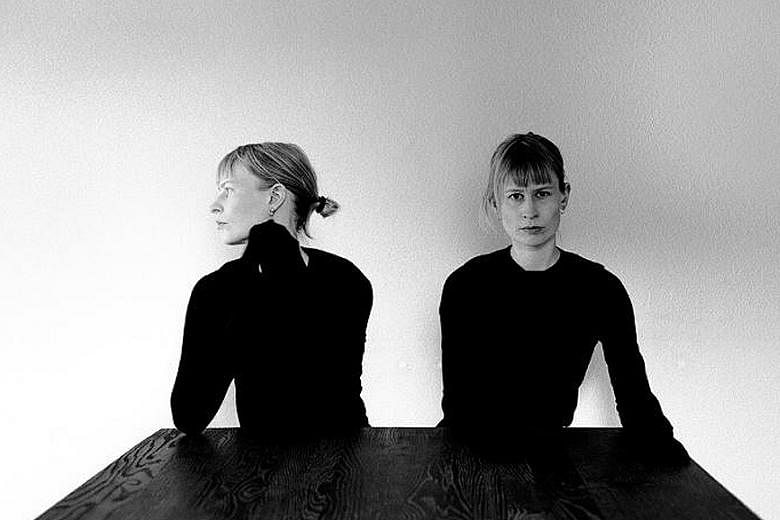Jenny Hval is not for the squeamish or the narrow-minded.
The Norwegian avant-garde artist is infinitely curious and does not do things by half - she dives into her subjects with unwavering passion and no regard to ingratiating radio play.
Her art is singular. Her 2016 studio album, Blood B***h, is a brazenly conceptual record inspired by vampires, menstruation and 1970s horror flicks; and her EP last year, The Long Sleep, is a jazzier, dreamier escapade into the subconscious.
Her latest release, The Practice Of Love, is another left-field project, fuelled by electro-pop, trance and New Age music -not something normally cred-enhancing for an indie artist.
It is the yin to Blood B***h's yang, but do not mistake the relative easy-listening stance for a softer, more amiable approach.
A hint is in the title: The album is named after a 1985 dramatic film written and directed by Austrian agent provocateur Valie Export, whose heroine vacillates between two male lovers and ultimately rejects them as the patriarchal social construct is immoral, corrupt and even murderous.
In her inter-media way, Hval is investigating the precepts of gender roles.
Take a listen to the title track, a dialogue, or rather, an overlap of two testimonies by two female artists, Australian folk classicist Laura Jean and Singaporean multi-instrumentalist Vivian Wang (formerly of The Observatory). Over synths that wash and trickle, some words are discernible.
-
AVANT-POP
-

THE PRACTICE OF LOVE
Jenny Hval
Sacred Bones
4 Stars
She demystifies romance and takes apart the baggage surrounding the culture of love and consummation. "Maybe 'sorry' is the closest I ever got to expressing love. In my bed, honesty is lying on top of love, sucking the blood out of it, occupying it. What's left is a little corpse," confesses one person.
Another imagines being childless in her late 30s, and being seen as a "supporting character", and that the "main characters are the people that have kids".
Hval burrows into the past to excavate the roots of desires. For instance, she has said in an interview with Dazed magazine that she finds Alice (from Alice In Wonderland) "so annoying, because she was, like, 'this doesn't exist', 'this is stupid'".
In High Alice, she depicts the character as someone who needs to get in touch with imagination.
"Let her sketch out her rabbit hole/Her pleasure dome," Hval sings in a gossamer purr over 1990s-styled pop riffs and escalating synths, akin to how David Lynch suspends the ethereal-voiced Julee Cruise in a world of darkness in his movie Blue Velvet (1986) and television series Twin Peaks (1990 to 1991).
Hval breaches the wall between taste and cheese in Thumbsucker, dropping dollops of saxophone into a sea of synths. "I was a thumbsucker, what am I now?"
She pairs up with French musician Felicia Atkinson in exploring the act as a human instinct to find a nesting space, a haven for security.
This eternal search for connections - across artists, cliches, myths - culminates in the hands-in-the-air celebration, Six Red Cannas.
The matrilineal tribute to Joni Mitchell and Georgia O'Keeffe is a fabulous gyre of synths and club-beats rolling through time, with a statement adrift at the end: "We used to be all underwater."

